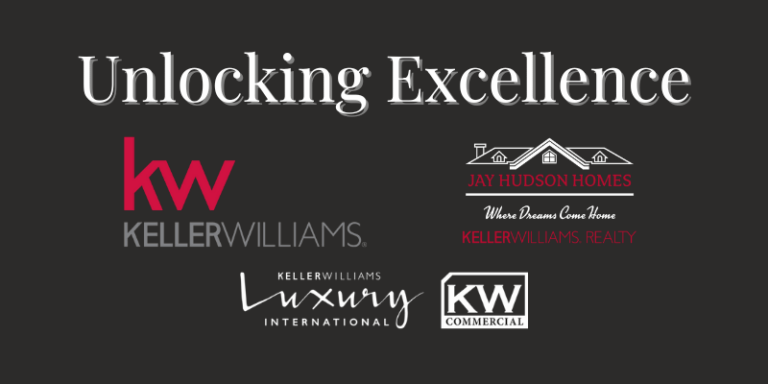Mortgage Myths Debunked
Separating Fact from Fiction for Home Buyers in Chattanooga
Is what you believe about mortgages holding you back from owning your dream home?
Cutting Through the Mortgage Confusion
Buying a home is one of life’s most rewarding milestones. Yet, for many prospective homeowners in Chattanooga, myths about the mortgage process create unnecessary fear and hesitation. From the idea that you need 20% down to the belief that perfect credit is a must, these misconceptions can delay or derail your path to home ownership.
But what if most of what you’ve heard simply isn’t true?
At Jay Hudson Homes, we believe knowledge is power—and today, we’re here to set the record straight. By debunking the most common mortgage myths, we’ll empower you to move forward with clarity and confidence.
Let’s dive into the truth behind these mortgage myths and discover why owning your dream home may be closer than you think.
Myth #1 “You Must Have 20% Down to Buy a Home”

The Myth:
One of the most persistent mortgage myths among home buyers is the belief that a 20% down payment is required to secure a mortgage. For many, this myth creates a major financial barrier, delaying their home ownership goals.
The Reality:
In truth, a 20% down payment is not a universal requirement. Several loan programs allow buyers to purchase a home with far less:
- FHA Loans: Require as little as 3.5% down.
- Conventional Loans: Offer options starting at 3% down for qualified buyers (Rocket Mortgage).
- VA Loans: Available to veterans with zero down payment.
- USDA Loans: Offer zero down for rural and suburban home buyers.
The 20% myth likely stems from the need to avoid Private Mortgage Insurance (PMI), which is typically required for conventional loans with less than 20% down. However, PMI can be a small price to pay for getting into your dream home sooner and building equity faster.
Bottom line: Don’t let the 20% myth hold you back—affordable pathways to home ownership are within reach.

Myth #2: “You Need Perfect Credit to Be Approved”
The Myth:
A widespread misconception is that only those with stellar credit scores—think 750 or higher—can secure a mortgage. As a result, many buyers hesitate to apply, fearing rejection.
The Reality:
While credit is a key factor in loan approval, perfect credit is not required:
- FHA Loans: Accept scores as low as 620.
- Conventional Loans: Can be obtained with scores starting at 620.
- First-Time Buyer Programs: Often have more flexible credit requirements.
Additionally, lenders evaluate other factors beyond credit scores, including:
- Debt-to-Income (DTI) Ratio: Typically needs to be below 45%.
- Stable Employment and Income History: Proof you can manage monthly payments.
- Home Buyer Education: Required for certain first-time buyer programs.
Key takeaway: Your credit score is important, but it’s only part of the equation—there are solutions designed to help buyers with less-than-perfect credit.
Myth #3: “FHA Loans Are Only for First-Time Homebuyers”

The Myth:
Many believe FHA loans are exclusive to first-time home buyers, limiting their options if they’ve purchased a home before.
The Reality:
FHA loans are not just for first-time buyers—they are for any qualified borrower. Their true appeal lies in their flexible requirements:
- Low Credit Score Requirements: Starting as low as 620.
- Low Down Payments: Just 3.5% down.
- Higher Debt-to-Income Ratios: Making them accessible to more buyers (The Mortgage Reports).
In short: FHA loans are a versatile tool for home buyers—first-time or not.
Myth #4: “Renting is Always Cheaper than Buying”
The Myth:
With rising home prices, some believe renting is more affordable than buying.
The Reality:
While monthly rent may seem lower upfront, home ownership offers significant long-term financial benefits:
- Equity Building: Each mortgage payment increases your ownership share, unlike rent payments, which build your landlord’s wealth.
- Fixed Payments: With a fixed-rate mortgage, your payments remain stable, unlike rents that often rise annually.
- Tax Benefits: Homeowners may deduct mortgage interest and property taxes from their taxable income.
Key takeaway: Renting may feel easier in the short term, but buying provides lasting financial security and growth.

Myth #5: “Pre-Approval & Pre-Qualification Are the Same Thing”
The Myth:
Many buyers assume pre-qualification is enough when making an offer.
The Reality:
While these terms sound similar, their impact on your buying power is vastly different:
- Pre-Qualification: A quick estimate of your borrowing power based on self-reported information. Useful for planning, but carries little weight with sellers.
- Pre-Approval: A comprehensive assessment by a lender, including credit checks and financial documentation. This results in a conditional loan commitment, making your offer stronger (Rocket Mortgage).
Bottom line: Pre-approval, not pre-qualification, gives you the competitive edge needed to secure your dream home.
Are Mortgage Myths Holding You Back?

So, is what you believe about mortgages holding you back from owning your dream home? Not anymore. Now that we’ve debunked these common myths, you can move forward with confidence.
At Jay Hudson Homes, we’re here to guide you through every step of your home-buying journey. Whether you’re a first-time buyer or experienced homeowner, our expertise in the Chattanooga market will help you find—and finance—the perfect property.
Your Next Steps:
- Explore mortgage programs that fit your needs, such as FHA or THDA.
- Get pre-approved with a trusted local lender.
- Partner with a Realtor who knows the Chattanooga market inside and out.
Ready to Make Your Move?
Contact Jay Hudson Homes today for a personalized consultation. Let’s turn your home ownership dreams into reality—without the myths holding you back.

Frequently Asked Questions
Does Georgia have a first-time home buyer program?
Yes! Georgia offers several first-time home buyer programs through the Georgia Dream Homeownership Program, which provides down payment assistance and affordable loans to qualified buyers. These programs are designed to make home ownership more accessible, especially for those with modest incomes or limited savings.
How many mortgage lenders should I meet with?
It’s a good idea to meet with at least three lenders to compare loan offers. Different lenders may offer varying interest rates, fees, and loan terms. Shopping around not only helps you find the best deal, but can also give you negotiating power when discussing rates or closing costs.
When should I reach out to a lender?
You should reach out to a lender before you start house hunting—ideally 3 to 6 months before you plan to buy. Early contact allows you to:
Understand your budget and what you can afford.
Get pre-approved, which strengthens your offer when you find the right home.
Address any credit issues and improve your mortgage terms.








One Comment